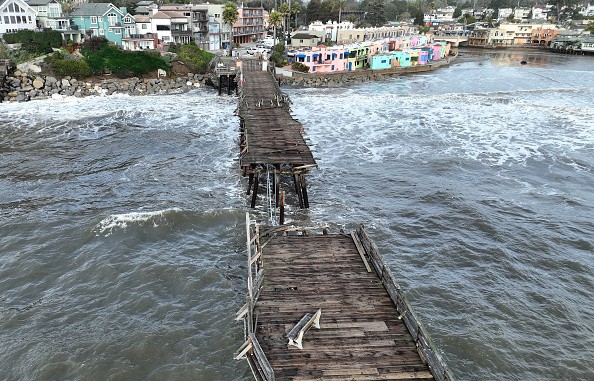The beginning of January in the United States recorded powerful storms unloading heavy rain and hurricane-force winds. Storms to Hurricanes would bring a life-threatening situation to communities.
As a result, preparing a disaster plan would help you and your family.
Before 2023, December brought a heavy winter storm to the United States, resulting in heavy snow and lake-effect snow in the country. The winter storm resulted in extreme weather conditions, casualties, road hazards, and widespread power outages.
Furthermore, severe weather conditions began in the first week of January. According to the AccuWeather report, persistent rounds of rain pounded portions of the West Coast and California, with life-threatening flooding and mudslides.
The National Weather Service (NWS) said that the heavy atmospheric river is expected to continue next week.
Weather reports said that many residents were evacuated and widespread power outages occurred due to the storm conditions.
As a result, having a storm plan would be helpful to prepare. According to the CDC's Natural Disasters and Severe Weather Conditions, it is important to prepare for hurricanes or severe weather conditions. It would cause damage to properties and lives.
Storm preparedness

Here are some significant tips that you should remember.
Staying updated with weather forecasts or reports
Keeping alert or aware of the current weather reports is useful. Weather forecasts help to provide urgent weather news to communities that can guide you and local officials.
You can prepare and anticipate severe weather conditions. Listening to the radio or local weather stations would be helpful.
It is important to evacuate immediately if the storm becomes severe or when advised.
Preparing a plan
Weather forecasts provide news alerts, helping communities to prepare. Having an emergency plan could save you from a life-threatening situation.
It is important to keep an emergency bag containing essential emergency kits that you could bring to shelters or evacuation sites. The emergency bag should have the basic food necessities, battery-powered radio, power banks, extra mobile phones, medicines, primary IDs, flashlights and raincoats.
If you plan to travel to areas with severe weather conditions, your car must have disaster-emergency kits. You should also locate the nearest evacuation sites.
Full-charged your mobile phones
Power outages would be possible during severe weather conditions.
It is best to ensure that all gadgets (mobile phones) must be fully charged. Save essential contacts in case of emergency.
Be mindful of weather conditions in traveling
The weather conditions could bring extremely difficult travel for many motorists, resulting in slow commutes and significant travel disruptions.
If it is possible, reschedule your trip when the weather becomes better.
After the storm, be careful with debris
When the storm finally abates, check if it is safe to return to your house. Be cautious with debris and flood waters. Observe your home for potential damages and needed repairs.
Be careful with electric wiring, and it is best to consult a professional electrician to repair the damaged wires.
If you are injured or any of your family members are missing, immediately inform the nearest local authorities to help you with search and rescue operations.
Related Article: [Weather Update] Atmospheric River and Bomb Cyclone Unload Heavy Rain and Strong Winds on West Coast
For more similar, don't forget to follow Nature World News.
© 2025 NatureWorldNews.com All rights reserved. Do not reproduce without permission.





